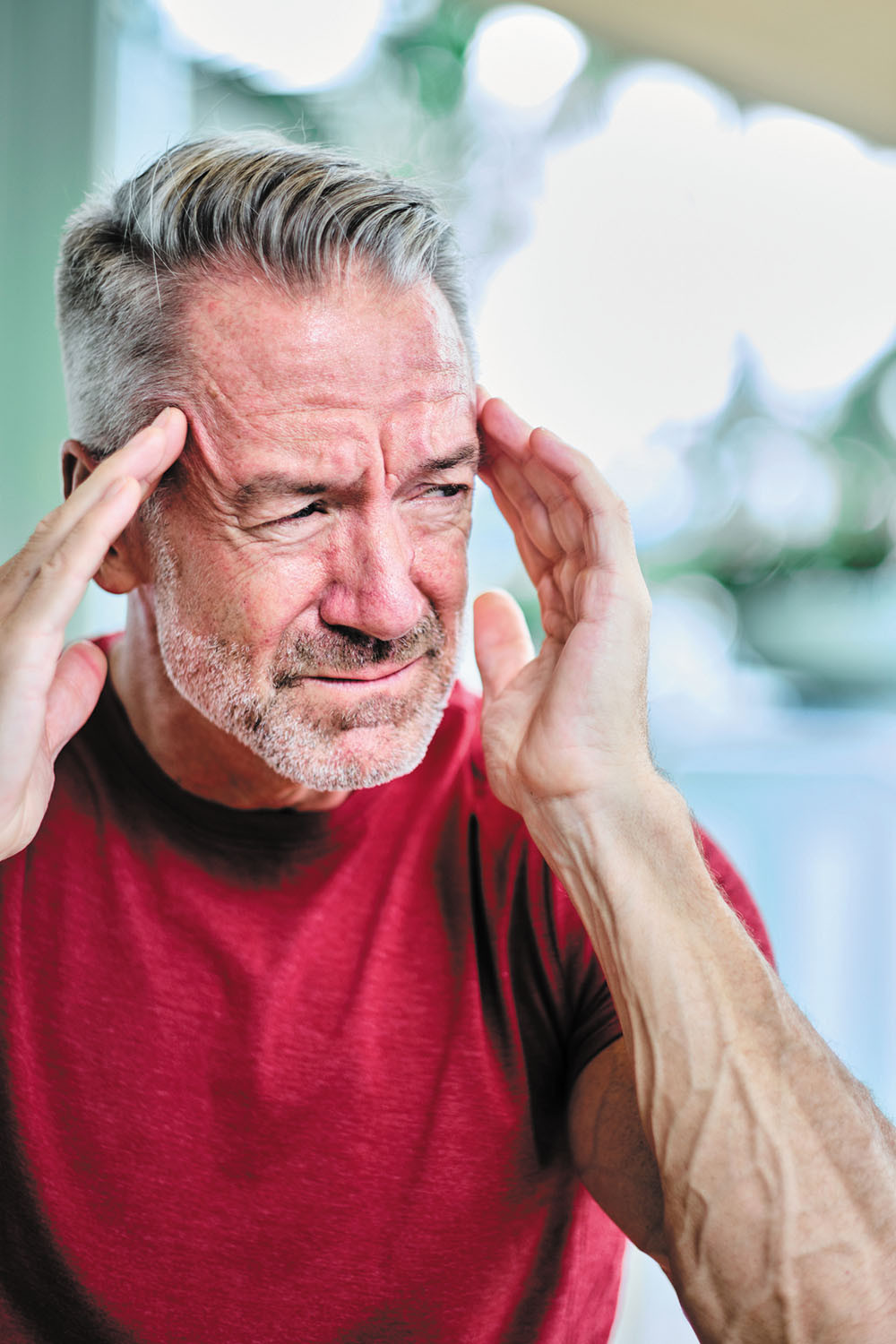
What can magnesium do for you and how much do you need?

Dry socket: Preventing and treating a painful condition that can occur after tooth extraction

What happens during sleep �� and how to improve it

How is metastatic prostate cancer detected and treated in men over 70?

Could biofeedback help your migraines?

Plantar warts: Options for treating this common foot condition

Cancer survivorship: What comes next after treatment

Nutritional yeast: Does this savory, vegan seasoning pack a nutritional punch?

Salmonella is sneaky: Watch out

Two jobs may lower the odds of dying from Alzheimer's disease �� but why?
Kidney Disease & Health Archive
Articles
How physical activity keeps your heart in good shape
Moderate-to-vigorous exercise appears to be the best way to boost cardiorespiratory fitness (CRF), which quantifies how well the heart and lungs supply oxygen to the muscles during physical activity. Higher CRF during midlife is linked to a lower risk of conditions closely tied to heart disease (including early signs of atherosclerosis, high blood pressure, and diabetes) later in life.
Taming the chronic inflammation of psoriasis
Reduce the health risks from "forever chemicals"
How to hydrate
By the way, doctor: Should I be worried about a kidney cyst?
Recently, I had a pelvic ultrasound to evaluate uterine fibroids. During the procedure, the radiologist found a cyst in one of my kidneys. Should I be concerned about kidney cancer?
Avoiding the pain of kidney stones
If you've had a stone, the problem is likely to recur �� but it doesn't have to. Use these strategies for prevention.
The pain associated with kidney stones has been described by some as more excruciating than childbirth. Kidney stones are small, hard stones, formed when high levels of minerals in your urine start to crystallize in your kidneys, forming a pebble-like mass. The pain comes when these stones migrate from your kidneys through the ureters, which are the narrow tubes that carry urine from your kidneys into your bladder.
"Kidney stone pain is not subtle," says Dr. Gary Curhan, a professor of epidemiology at the Harvard T.H. Chan School of Public Health. It typically starts in the flank, at the side of the lower back. Sometimes if the stone moves, the pain migrates to the front of the body.
What’s behind racial disparities in kidney disease?
Kidney disease requiring dialysis or transplant is far more common among African Americans than among white Americans, but genetics and biology play only a small role in this excess risk; the difference is linked to social and economic injustice rooted in systemic racism, and all the added burdens associated with it.
How do you avoid kidney stone attacks?
On call
Q. I want to avoid another kidney stone attack. What's your advice about diet, coffee, tea, and alcohol?
A. The foods you eat and the amount of fluid you drink can contribute to some types of kidney stones. Certainly, you can help prevent recurrent kidney stones by paying attention to your fluid and food intake.
Novel diabetes drug may help people with heart failure, kidney disease
Research we're watching
A unique diabetes drug shows heart-related benefits in people with diabetes who also have recently worsening heart failure or kidney disease, according to two new studies.
The drug, sotagliflozin (Zynquista), belongs to a class of drugs called SGLT2 inhibitors, which cause the kidneys to release more sugar into the urine. The drug is also an SGLT1 inhibitor, meaning it decreases sugar absorption in the intestines. This dual action lowers high blood sugar, the hallmark of diabetes. In people with kidney disease, sotagliflozin lowered the total number of deaths from cardiovascular disease and hospitalizations and urgent visits for heart failure by about 26% compared with a placebo. In a second study, which included people with recently worsening heart failure, those taking the drug had a 33% decrease in those same heart-related measures compared with a placebo.
What are the long-lasting effects of COVID-19?
Ask the doctor
Q. I read that the death rate from COVID-19 is going down, but that people who recover from the infection still can remain sick for a long time. Is that true?
A. It is true, but we don't yet know how big the problem is: COVID-19 has been with us for only a year, and there hasn't been enough time to know the long-term effects.

What can magnesium do for you and how much do you need?

Dry socket: Preventing and treating a painful condition that can occur after tooth extraction

What happens during sleep �� and how to improve it

How is metastatic prostate cancer detected and treated in men over 70?

Could biofeedback help your migraines?

Plantar warts: Options for treating this common foot condition

Cancer survivorship: What comes next after treatment

Nutritional yeast: Does this savory, vegan seasoning pack a nutritional punch?

Salmonella is sneaky: Watch out

Two jobs may lower the odds of dying from Alzheimer's disease �� but why?
Free Healthbeat Signup
Get the latest in health news delivered to your inbox!
Sign Up











